The other day, I was devouring Baba Ganoush like always when it struck me: Can my bird eat eggplants? The short answer? Nope. But let me give you the context first.
Birds should not consume eggplant as it can be detrimental to their health. Nightshade poisoning, caused by the high amount of solanine in eggplants, can be deadly and cause stomachaches, diarrhea, and dehydration.
The research led me to unravel a whirlpool of information (how can it not when it’s about the safety of my feathered friends?).
In this blog, I will share my findings with all of you about the pros and cons of introducing eggplant to your bird’s diet.
Before flying right into that, let’s get to know the star of the show first.
What Are Eggplants?
We know them as eggplant, aubergine, and brinjal; however, their names aren’t the only variety in them.
This section highlights the many facts about eggplants we remained unbeknownst to, allowing us to understand the scientific depths to assess their safety for our feathered friends.
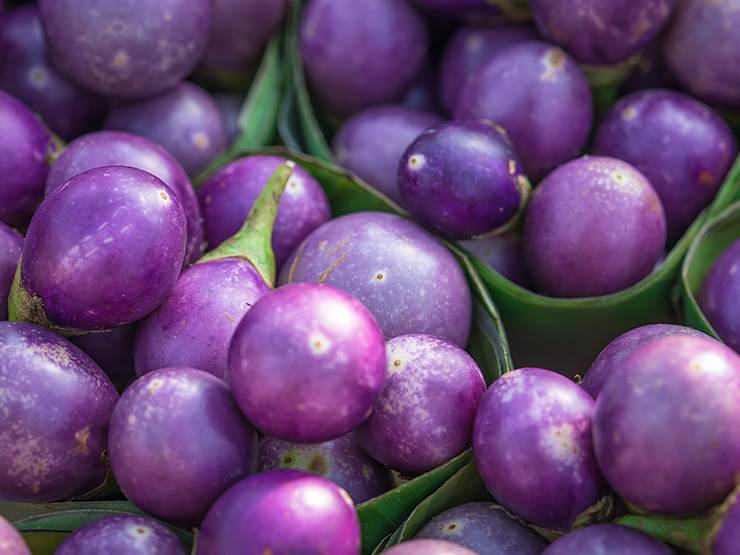
It is to get familiarized with what eggplants are, in case you didn’t know what they are already.
Originally, eggplants were native to South Asian countries such as India, Bangladesh, and Burma. However, when trade began, eggplants won over Chinese cuisine and have been popular ever since.
Eggplants belong to the nightshade family with many other famous members, such as tomatoes. This information, in particular, will play a prominent part in determining bird safety.
They come in many shapes and colors. The varieties are endless, and each Asian household has claims on their favorites ones! It is a mouth-watering addition to dishes from cuisine all over the world.
Whether it’s eggplant linguine or a stir-fry, this versatile veggie will win your family with its deliciousness and nutritional benefits.
Now the question remains unanswered: Do birds enjoy eggplants?
Let’s find out!
Are Eggplants Safe for Birds?
Unless you’ve been living under a rock like me, you are familiar with the term; nightshade poisoning.
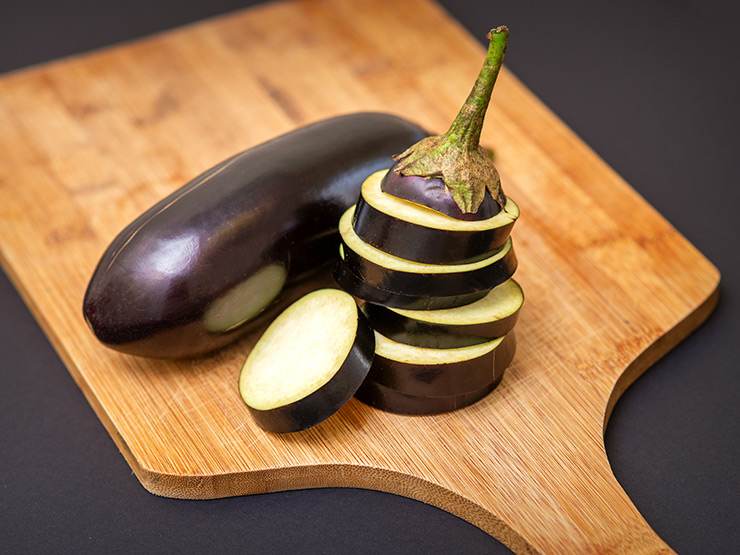
Unfortunately, eggplants are one of the leading causes of nightshade poisoning, considering they’re part of the nightshade species. Although the fruit remains harmless for consumption, other parts of the plant can be detrimental.
Imagine how deadly it can be for small creatures like birds if they are so harmful to humans.
Consuming any eggplant leaf or stem can instantly induce nightshade poisoning. It is one of the primary reasons why giving your pet nightshade fruits is forbidden.
Another health risk to factor in is the high amount of solanine present in eggplants. If you’re an eggplant fanatic like me, you already know solanine causes bitterness in them.
Solanine is a prominent component in nightshade plants. It is notorious for inducing stomachaches, diarrhea, and dehydration in animals.
In humans, they are insignificant due to the numerous enzymes present to break them down.
Unfortunately, birds don’t have that option, making them more prone to diseases and poisoning than humans.
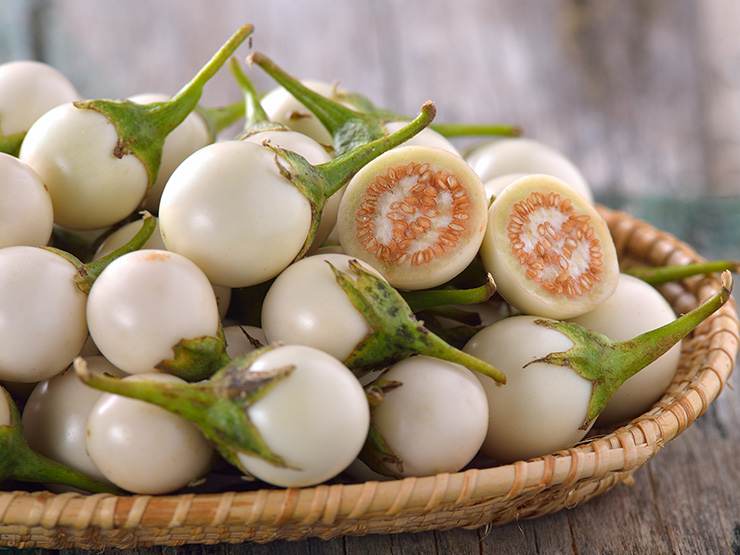
Oxalic acid plays a big part in why eggplants are unsafe for birds.
Oxalic acid metabolizes into oxalate, which prevents the absorption of vital nutrients. These oxalates can induce deficiencies in birds instead of reducing them.
These symptoms go amiss in animals leading to deaths as well.
Why Don’t Wild Birds Eat Eggplants?
Have you ever wondered why eggplant hasn’t been discussed in the bird community until recently? This section will be the answer to all your queries.
Seeing a wild bird eat eggplant is rarer than a total solar eclipse. It’s just not part of nature.
Although birds eat whatever they can, word spreads when you’re a part of flocks.
Eggplants have been harvested worldwide for generations now. As the generations passed, birds evolved into being aware of the dangers nightshade plants behold.
Since it’s not even in birds’ natural diet, feeding them eggplants through their diet didn’t ever come across people’s minds until now.
Why Your Pet Bird Might Not Enjoy Eggplant?
Birds are versatile creatures, as all of you know by now. However, birds tend to be initially hesitant when introduced to new diets.
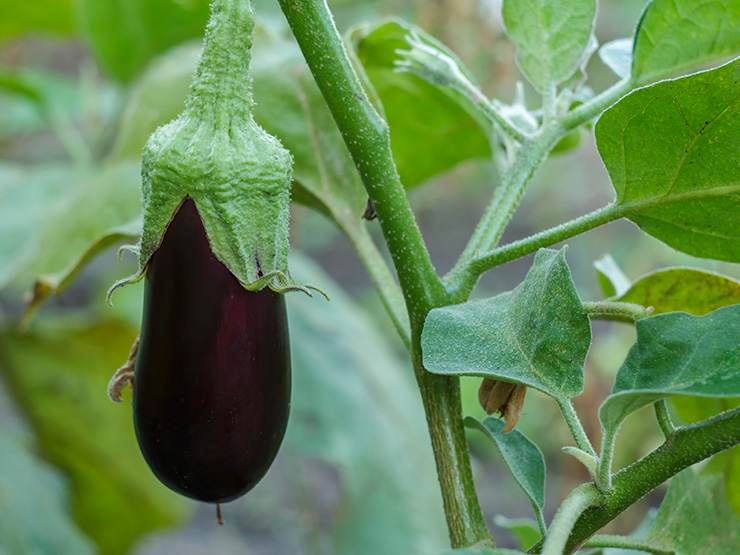
That’s what I thought when the misconception of eggplants being “perfectly safe” for birds began to spew around. I decided to try it out myself.
Turns out it was a big fat lie! Birds despise eggplants for their bitter taste. Especially since it causes them an upset stomach.
No matter how versatile, birds gravitate towards vegetables that tend to be zesty or crunchy.
Nonetheless, this is only sometimes the case. Some birds may enjoy the bitterness in them. However, the risks associated with consuming eggplants don’t outweigh them.
Does Changing the Way of Serving Eggplant Make Any Difference?
A myth has been spewing in the bird community for a while now. Let’s put an end to it today.
It is believed that solanine can be drawn out through a few methods. Here’s the most popular one I’ve come across.
Soaking eggplants in saltwater has drawn out high amounts of solanine from eggplants. While it’s great news for eggplant lovers, it still doesn’t help the cause of birds.
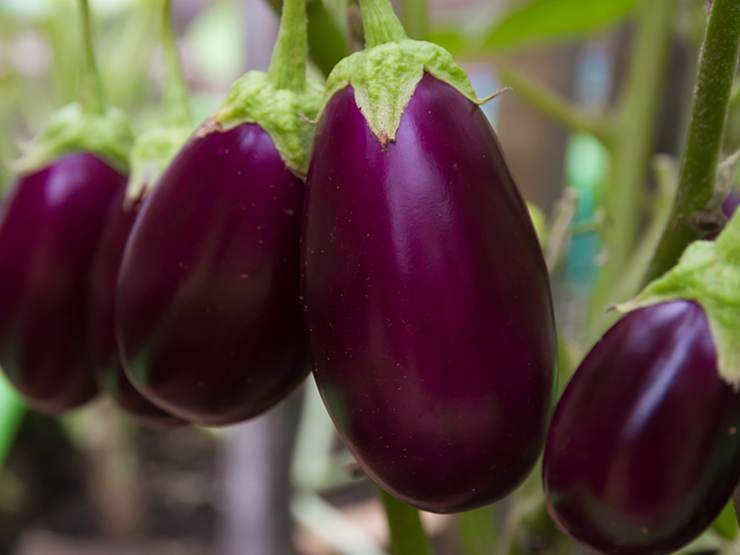
If you’ve been an avid bird lover, you know how deadly salt toxicity can be. It’s the reason why most human foods are deemed unsafe.
Apart from soaking, I’ve also seen cooking as a highly advised method. It does draw out solanine without having any other health repercussions.
However, it does blanch out the same nutrients you consider to provide eggplant to your bird.
Hence, is it worth it to go the extra mile? Let’s find out!
What Are the Nutritional Benefits of Eggplant?
Despite all the drawbacks of eggplants, the benefits make them worthy enough to consider.
What are these oh-so-many nutrients that make people worldwide go ballistic over them?
Here are a few that will surely catch your eye.
Vitamin A – It is an essential micronutrient that regulates cognitive health and vision along with other organ health.
Birds are prone to Vitamin A deficiencies which lead to kidney failures, blindness, and reproductive issues.
Folic Acid – Eggplants are chock-full of folic acid which improves cell growth by forming new amino acids.
Folic acid deficiency plays a prominent part in egg binding. Giving your birds a boost of folic acid can decrease anemia, high mortality rates in hatchlings, and musculoskeletal diseases.
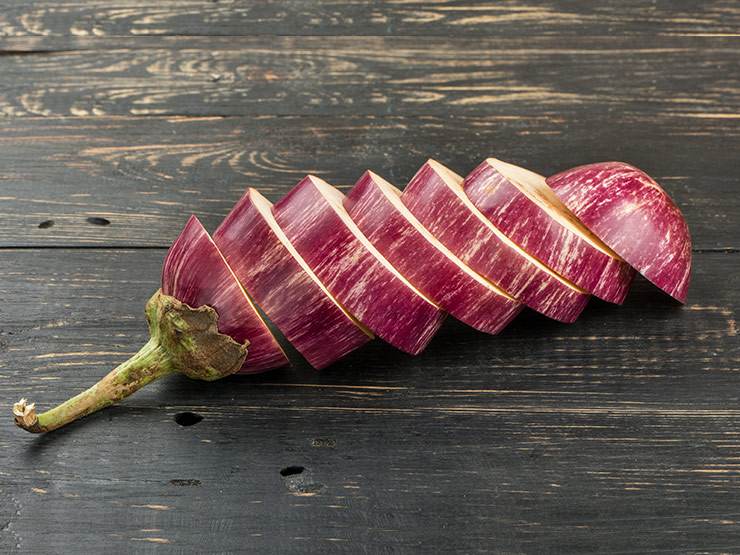
Phytonutrients – They are the nutrients responsible for the blue and purple colors in the eggplant skin
What most people don’t know is how these blue and purple vegetables are brimming with antioxidants. And it’s all because of the same chemicals called phenol!
Phytonutrients provide antioxidants that prevent the plethora of diseases birds can encounter daily.
Next time you see a blue or purple vegetable and fruit, research to see if they’re safe for your birds since they boost their immune system even better than vitamin C.
Vitamin B6 – Similar to Vitamin A, it is also another deficiency that makes birds struggle daily.
Vitamin B6 deficiencies cause poor muscle growth and deformities. Hence, it is vital to uptake your bird’s Vitamin B6 consumption.
Potassium – It is key to metabolizing proteins and other minerals. Potassium deficiencies can result in fatigue and poor muscle growth.
Calcium – Eggplants are known to have an impeccable amount of calcium content (9mg) that exceeds a bird’s daily required intake.
Eggplant could’ve been the perfect substitute for milk for birds if not accompanied by solanine and nightshade.
What Are the Alternatives to Eggplant?
Who doesn’t want to include such incredible nutrient content in their bird’s diet in the safest way, right?
This is why in this section, we’re going to explore the numerous alternatives to eggplant.
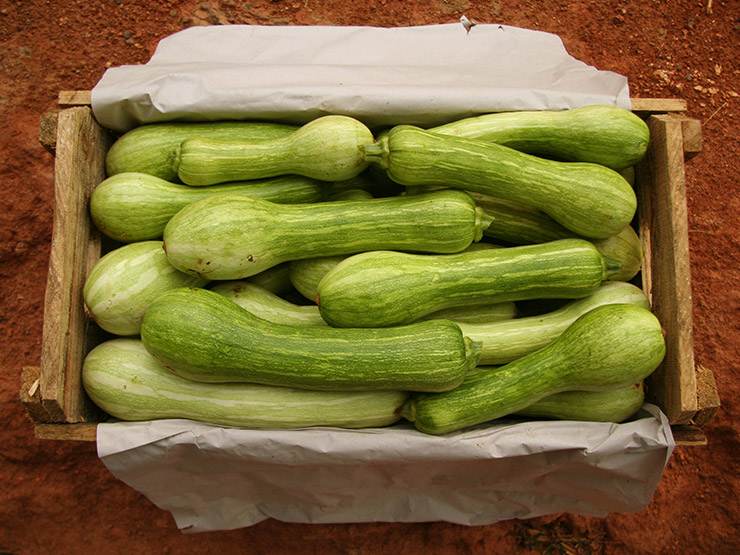
Starting with squashes, especially summer squashes. They provide a better nutrient content while being a sweet treat for your birds.
If your bird struggles with egg-binding, add hemp seeds instead of eggplants in the diet to lower mortality rates in offspring.
It will become essential in your bird feeders during mating season.
To increase your bird’s potassium intake, add bananas to your chop for a delicious twist.
As for increasing calcium levels to avoid musculoskeletal diseases, try vegan milk and nuts instead!
Final Remarks
To summarize, eggplant can be delicious and healthy for us humans. But can birds eat eggplants? Nope! They can be deadly.
Give the list of alternatives a try, and you’ll soon forget ever considering eggplants as an addition to your bird’s diet!